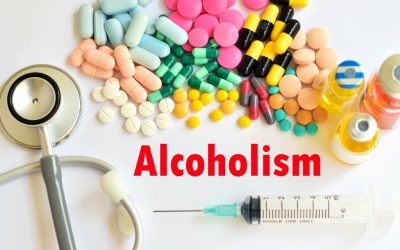How to Get to Sleep After a Night of Drinking
Many people who regularly drink excessive quantities of alcohol become alcohol-dependent. There is a great deal of help for people who are alcohol-dependent and want to stop drinking. In this study, we used PASW SPSS Statistics ver. 18.0 (SPSS Inc., Chicago, IL, USA) for statistical analyses with significance level set at less than 0.05 for all statistical operations. We used the Wilcoxon two-sample test to assess gender differences in AUDIT-KR scores.
- And drink one glass of water for every alcoholic beverage you have to give your liver a chance to catch up in the detoxification process.
- Wayne State University tells us drinking booze before bed leads to more crazy dreams, increased risk of snoring, and higher problems with night sweats.
- Hone is an online clinic that helps men and women manage their health.
- The microbiome is the network of bacteria (both helpful and harmful) in your gut that determines how you process your food, and other particles consumed.
Understanding the Long-Term Benefits of Quitting Alcohol
You may have also developed a tolerance to the sedative effects of alcohol and other factors, like poor sleep hygiene, could be keeping you awake. Sober nights unfold like a time-lapse flower blooming, revealing the vibrant colors of restorative sleep long masked by alcohol’s dulling effects. This poetic imagery captures the transformative journey many experience when they decide to quit drinking alcohol. The path to better sleep after giving up alcohol is not always smooth, but it is undoubtedly rewarding. This is in agreement with our findings that, among men, drinking decreased overall sleep duration and increased sleep disturbances.

Why Can’t I Fall Asleep After Drinking Alcohol?

With alcohol no longer interfering with these sleep stages, many people report feeling more mentally sharp and emotionally balanced during the day. As the body continues to adjust to life without alcohol, more noticeable improvements in sleep quality begin to emerge. One of the most significant changes during this period is the reduction in night sweats and vivid dreams.

Immediate effects on sleep after quitting alcohol (Days 1-
Siestio is an evidence-based resource dedicated to sleep and wellbeing. Whether you’re affected directly or indirectly by sleep issues, we’re here to help. Wayne State University tells us drinking booze before bed leads to more crazy dreams, increased risk of snoring, and higher problems with night sweats.
- Symptoms can range from mild to severe, and frequently include insomnia and other sleep disruptions.
- Several factors can influence how quickly and to what extent sleep improves after giving up alcohol.
- These sleep issues can include insomnia, disrupted sleep patterns, sleep apnea, or other sleep-disordered breathing.
- After several months of sobriety, many individuals experience a full restoration of their natural sleep-wake cycle.
Even though it’s a natural supplement, it’s not safe (11) to consume alcohol and melatonin together as it could i can’t sleep when i drink alcohol lead to dizziness and drowsiness. So, what do you do if you need to ensure a good night’s sleep after one too many beverages? Once it hits the central nervous system, alcohol—which is classified as a drug—has a sedative effect. That’s why, after a drink or two, you begin to feel relaxed, inhibitions are lowered, and you may start to feel tired. If you sleep better when you don’t drink, you might consider stopping alcohol use entirely. However, if you continue to have sleeping difficulties, reach out to a sleep specialist.
The Importance of Support Groups
REM sleep is characterized by increased brain activity, relaxation of the body, rapid eye movements, and increased dreaming. Don’t let the fear of insomnia or other effects from alcohol cessation discourage you from seeking sobriety. With professional assistance, withdrawal and other side effects can be managed and you can achieve the quality of life you deserve. There are also several steps you can take to improve your quality of sleep and quality of life. Some you can adopt on your own, and some are under the supervision of a health professional.